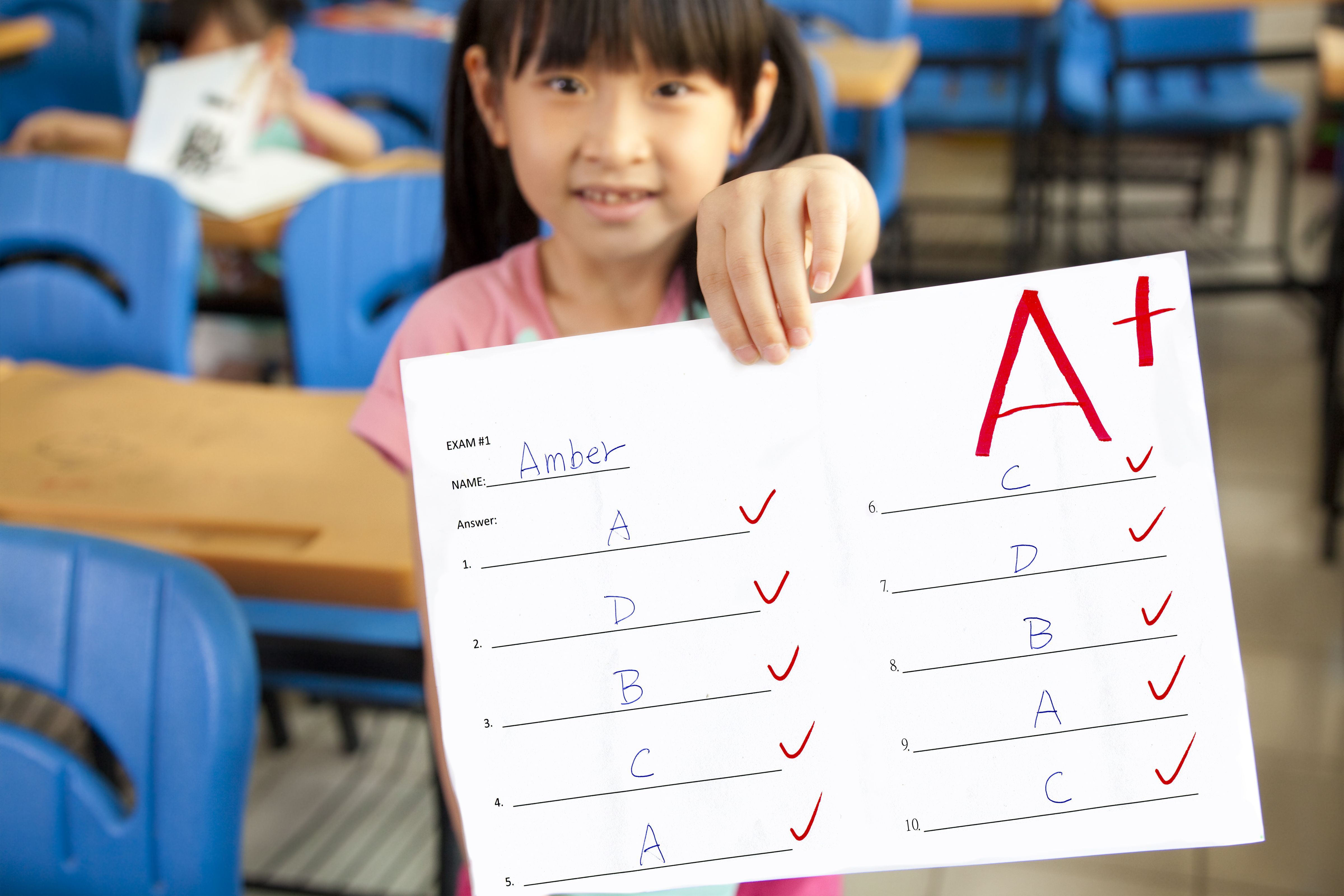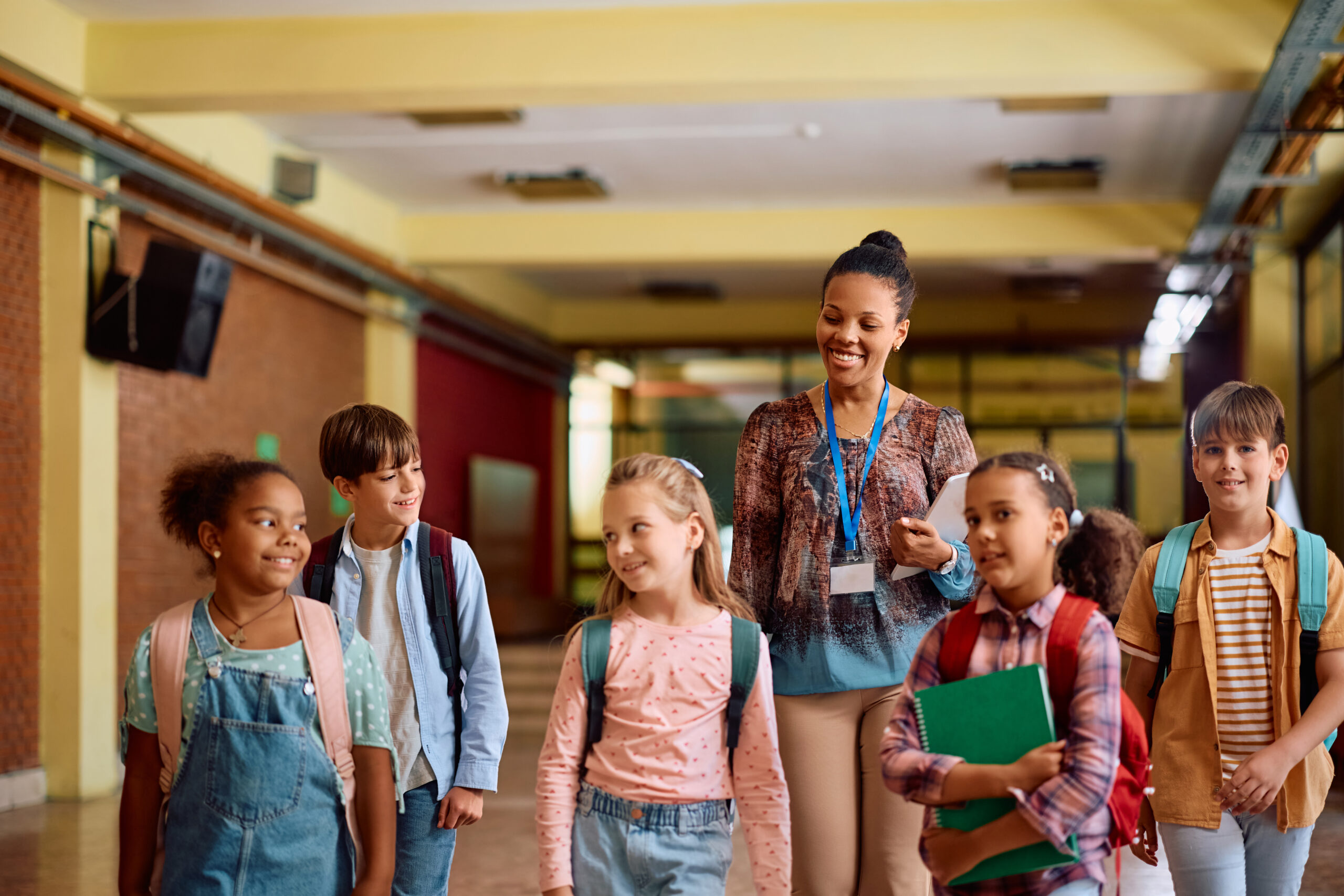Ways Kindergarten helps children transition to Grade School
Everything about Preschool: Understanding the Importance of Very Early Youth Education Programs
Preschool functions as a critical point in a kid's early advancement. It introduces fundamental skills essential for future discovering and social interactions. With numerous tasks, children involve in organized play that promotes cognitive development. Comprehending the nuances of various preschool programs can even more brighten their importance. What specific advantages do these early education experiences provide, and just how do they shape a kid's trajectory? The solutions may be much more intricate than one could expect.

The Duty of Kindergarten in Youngster Development
Some might watch kindergarten simply as a transition stage before formal education, it plays an important role in youngster development. This fundamental stage promotes crucial social, psychological, and cognitive skills that are crucial for long-lasting knowing. In kindergarten, youngsters participate in organized play, which boosts their capacity to comply, share, and settle problems with peers. These interactions prepared for healthy and balanced connections and improved communication skills.
Furthermore, kindergarten introduces kids to fundamental ideas in literacy and numeracy, triggering interest and a love for knowing. Teachers assist students through activities that advertise crucial and analytical thinking, essential components of intellectual development. Moreover, the atmosphere emphasizes routine and structure, aiding youngsters establish self-control and freedom. By focusing on alternative growth, kindergarten warranties that children are not just prepared academically yet likewise socially and emotionally for the obstacles of future academic endeavors.
Trick Advantages of Very Early Childhood Education
Early youth education uses various advantages that can considerably impact a youngster's development and future success. Study shows that kids that participate in high quality very early education programs display enhanced cognitive abilities, better language growth, and enhanced social skills contrasted to their peers that do not participate in such programs. These fundamental skills are essential as they set the phase for scholastic achievement and long-lasting learning.
Furthermore, early education promotes emotional growth by supplying children with chances for participating play and conflict resolution, assisting them create durability and compassion. Kindergarten. In addition, these programs usually help connect the gap for children from diverse backgrounds, guaranteeing equitable accessibility to finding out experiences and resources
Ultimately, purchasing very early childhood years education and learning not just benefits private children however also contributes to stronger neighborhoods, as informed individuals are more probable to involve positively in culture and the labor force.
Different Types of Kindergarten Programs
Various kindergarten programs accommodate different educational approaches and requirements. Full-day options provide extensive understanding time, while the Montessori strategy highlights independence and hands-on experiences. Furthermore, play-based knowing techniques foster creativity and social abilities, illustrating the variety in very early youth education and learning.
Full-Day Kindergarten Options
Numerous moms and dads and instructors recognize the expanding importance of full-day kindergarten options in very early youth education. Full-day programs generally give an even more comprehensive knowing experience, permitting youngsters to participate in a variety of tasks throughout the day. These alternatives often consist of a well balanced educational program that incorporates scholastic, social, and psychological growth. Some areas supply conventional full-day kindergarten, while others might give customized programs, such as double language or thematic learning environments. In addition, full-day kindergarten can suit working parents by aligning college hours with common job routines. Research suggests that pupils in full-day programs commonly demonstrate boosted academic efficiency and social skills compared to their peers in half-day setups, making these options increasingly preferred in lots of areas.
Montessori Method Review
The Montessori method is just one of lots of academic viewpoints, it has obtained significant interest for its special focus on child-led knowing and exploration. Established by Dr. Maria Montessori, this approach concentrates on fostering independence and self-directed activity in kids. Classrooms are normally made to urge movement and hands-on interaction with materials, enabling children to learn at their own pace. Montessori educators function as guides, assisting in finding out via monitoring as opposed to straight guideline. This approach prioritizes mixed-age classrooms, promoting partnership and peer discovering. Furthermore, the Montessori technique highlights useful life skills and sensory activities, aiding youngsters develop a solid structure in both scholastic and social proficiencies. Parents commonly value the alternative advancement that this method nurtures in their youngsters.
Play-Based Learning Techniques
Play-based knowing techniques are integral to countless preschool programs, emphasizing the relevance of play as a fundamental mode of learning for little ones. These techniques motivate expedition, creativity, and social interaction, allowing kids to engage in hands-on experiences that cultivate emotional and cognitive site development. Numerous sorts of play, such as imaginative, positive, and physical play, are utilized to sustain discovering goals throughout subjects like science, proficiency, and mathematics. Additionally, play-based programs typically integrate joint tasks, promoting teamwork and interaction skills. Educators observe and lead kids during play, guaranteeing that discovering results are attained while preserving a joyful knowing environment. This strategy not just enhances scholastic readiness yet also grows a long-lasting love for knowing, making it a vital component of early childhood education and learning.
The Relevance of Play in Learning
A substantial body of study highlights the critical function of play in early childhood education, highlighting its profound influence on knowing and growth. Play acts as a crucial mechanism where young youngsters explore their setting, develop cognitive skills, and enhance their analytical capabilities. Taking part in creative play permits children to try out different functions and situations, promoting creative thinking and crucial thinking.
Additionally, play-based knowing urges youngsters to involve with materials and ideas in a hands-on manner, making abstract ideas extra concrete and reasonable. This experiential understanding approach not just records kids's interest but also advertises innate motivation, basic for lifelong knowing.
Through play, youngsters additionally fine-tune their electric motor abilities and spatial awareness, preparing for extra complicated academic tasks. Basically, focusing on play in early childhood years education and learning programs is crucial for supporting holistic advancement, gearing up children with the fundamental skills essential for their future academic journeys.
Social Skills Growth in Kindergarten
Building on the foundation developed through play, kindergarten acts as an essential environment for social abilities development. Throughout this formative stage, youngsters participate in organized tasks that motivate interaction with peers. With team tasks, cooperative video games, and shared tasks, they discover important abilities such as conflict, communication, and compassion resolution.
Educators facilitate these communications, leading children in recognizing social signs and promoting positive relationships. As kids browse different social situations, they develop a sense of belonging and find out to value diverse point of views.
Preschool supplies possibilities for children to practice turn-taking, sharing, and settlement, which are crucial for building friendships. These experiences not only enhance social capability however also contribute to emotional intelligence. Because of this, the social abilities gotten in preschool prepared for effective interactions in later academic setups and throughout life. Consequently, the relevance of social abilities development in kindergarten can not be overemphasized.
Parental Involvement in Very Early Education And Learning

In addition, when moms and dads demonstrate an interest in their kid's education and learning, it grows a favorable mindset towards knowing. When they really feel sustained, kids are much more likely to establish a sense of belonging and motivation to prosper. Furthermore, parental involvement can boost a youngster's emotional well-being, resulting in greater resilience in encountering college difficulties. Promoting a collaborative setting between home and school is crucial for enhancing early instructional experiences and end results.
Getting ready for the Change to Elementary College
As kids come close to completion of their kindergarten trip, getting ready for the change to grade school becomes progressively important. This shift calls for cautious planning and support from both instructors and parents. Acquainting youngsters with the brand-new atmosphere, regimens, and expectations of primary school can reduce their anxiousness and promote confidence.
Institutions frequently give orientation sessions that present youngsters to their future classrooms and educators, cultivating a feeling of belonging. Furthermore, moms and dads can participate in discussions regarding the adjustments ahead, highlighting the amazing chances for discovering and social interaction.
Motivating freedom in day-to-day tasks, such explanation as complying with a timetable and dressing, can also be beneficial. Practicing necessary abilities, such as letter recognition and fundamental math, prepares children academically for initial quality.
Inevitably, a collaborative effort amongst moms and dads, instructors, and the community ensures a smoother change, laying a solid structure for an effective instructional trip.
Regularly Asked Inquiries
What Qualifications Should Kindergarten Teachers Have?
Kindergarten teachers need to have a bachelor's degree in very early youth education and learning or a relevant field, in addition to state certification. Extra credentials may include specialized training in child development, class administration, and reliable teaching techniques.
How Do I Pick the Right Kindergarten Program?
To pick the appropriate preschool program, one ought to consider aspects like curriculum, training approaches, course dimension, educator credentials, and parent evaluations. Visiting facilities and observing communications can also supply useful insights into the program's atmosphere.
What Should My Child Learn in Preschool?
In kindergarten, a youngster must discover foundational abilities such as fundamental reading and writing, counting, social communications, analytical, and motor abilities. These competencies cultivate cognitive advancement and prepare them for future academic challenges.
Exist Age Demands for Kindergarten Registration?
Most states call for children to be 5 years old by a particular day, frequently September 1st, for kindergarten registration. Nevertheless, details age requirements can differ, so checking regional college district regulations is necessary.

Exactly How Can I Assistance My Child's Discovering in the house?
To sustain a youngster's knowing in your home, parents can develop a regular, give engaging educational materials, motivate reading, take part dig this in hands-on tasks, and foster open interaction to nurture interest and important reasoning skills.
Kindergarten serves as a critical stage in a child's very early advancement. Some might watch preschool just as a transition stage before formal schooling, it plays a vital duty in youngster growth. In enhancement, preschool presents kids to basic concepts in literacy and numeracy, sparking inquisitiveness and a love for learning. Play-based understanding approaches are essential to various preschool programs, highlighting the value of play as a fundamental setting of learning for young youngsters. In preschool, a kid must learn fundamental abilities such as fundamental reading and writing, counting, social interactions, analytical, and motor skills.